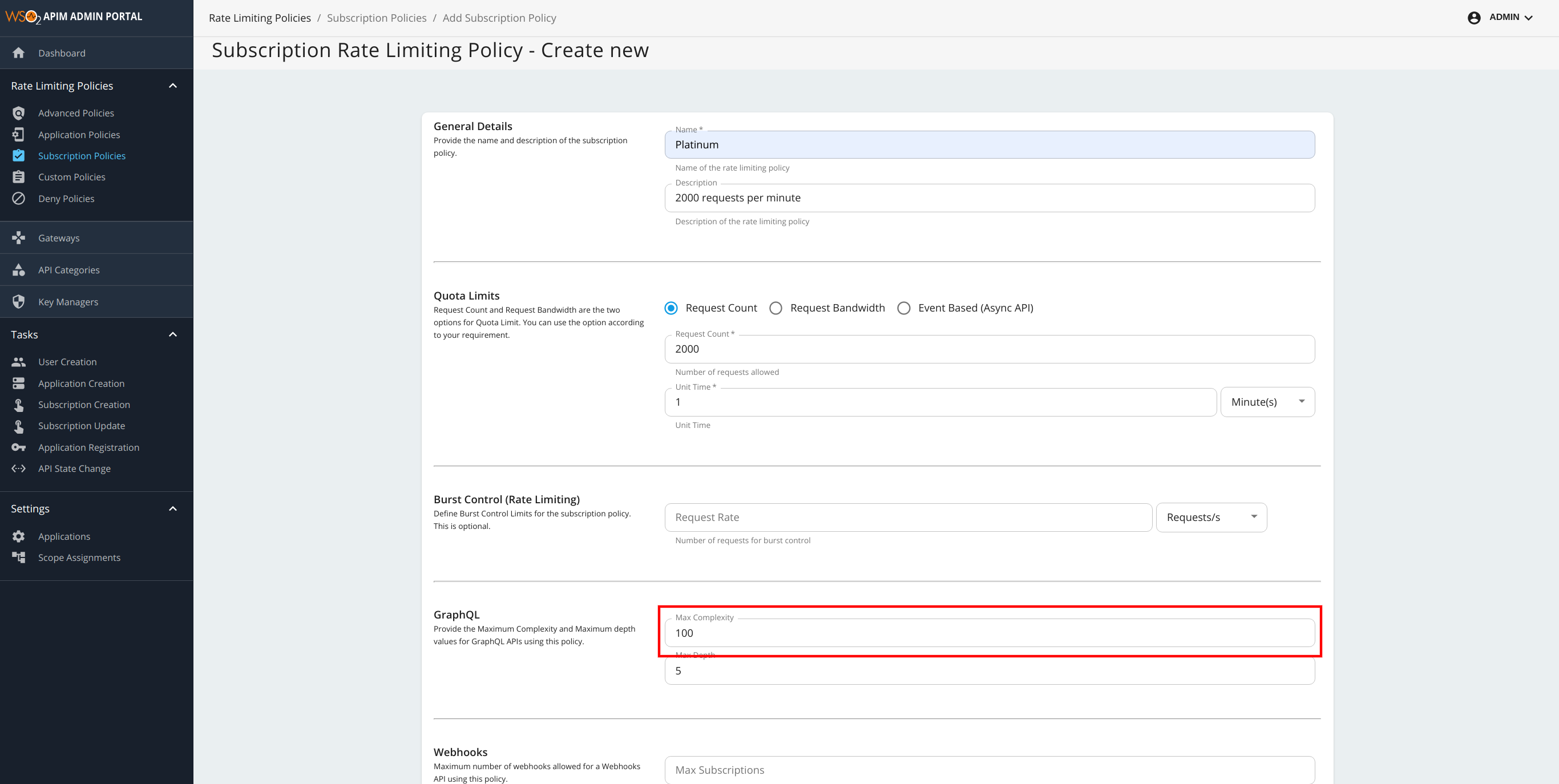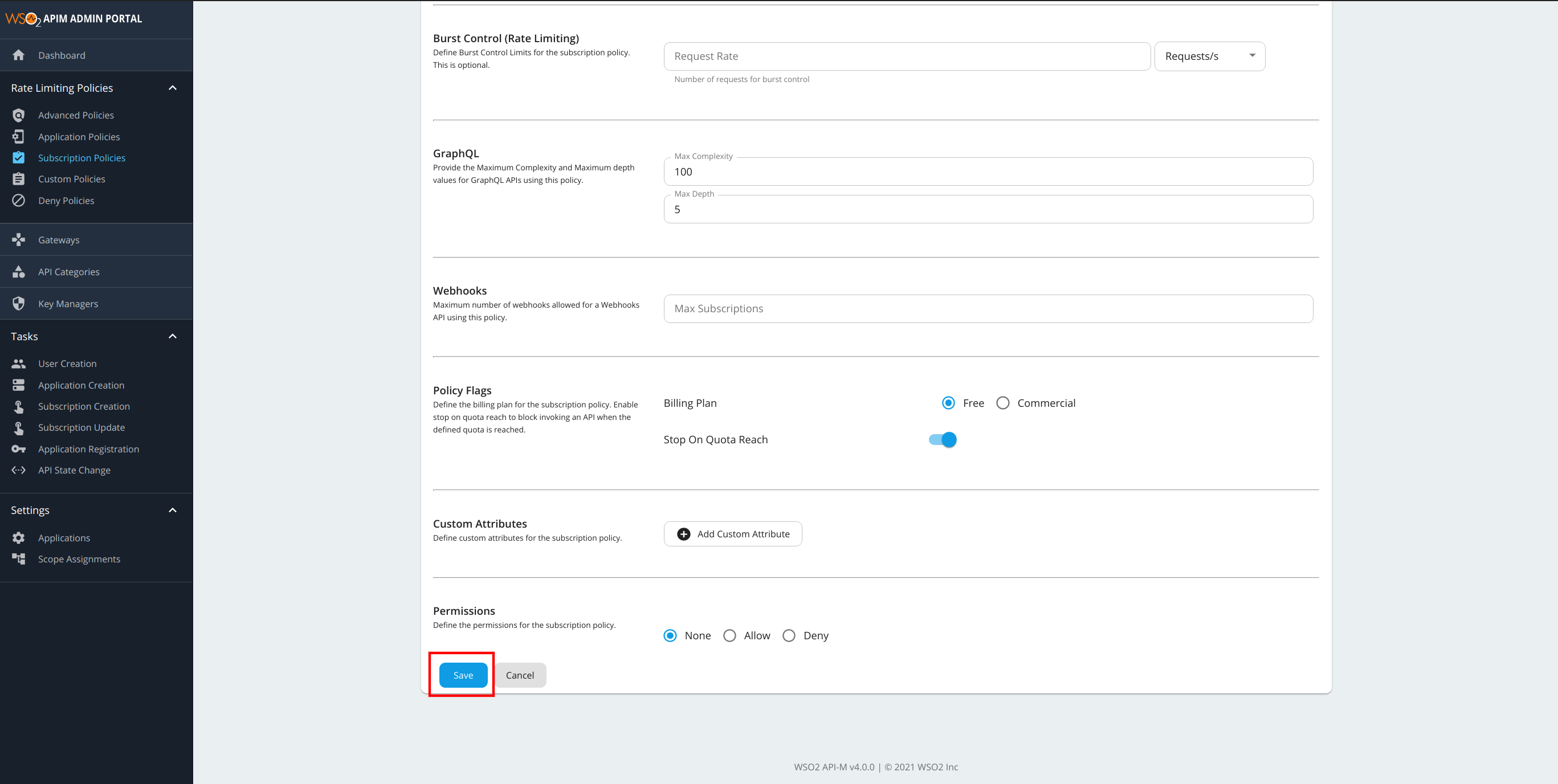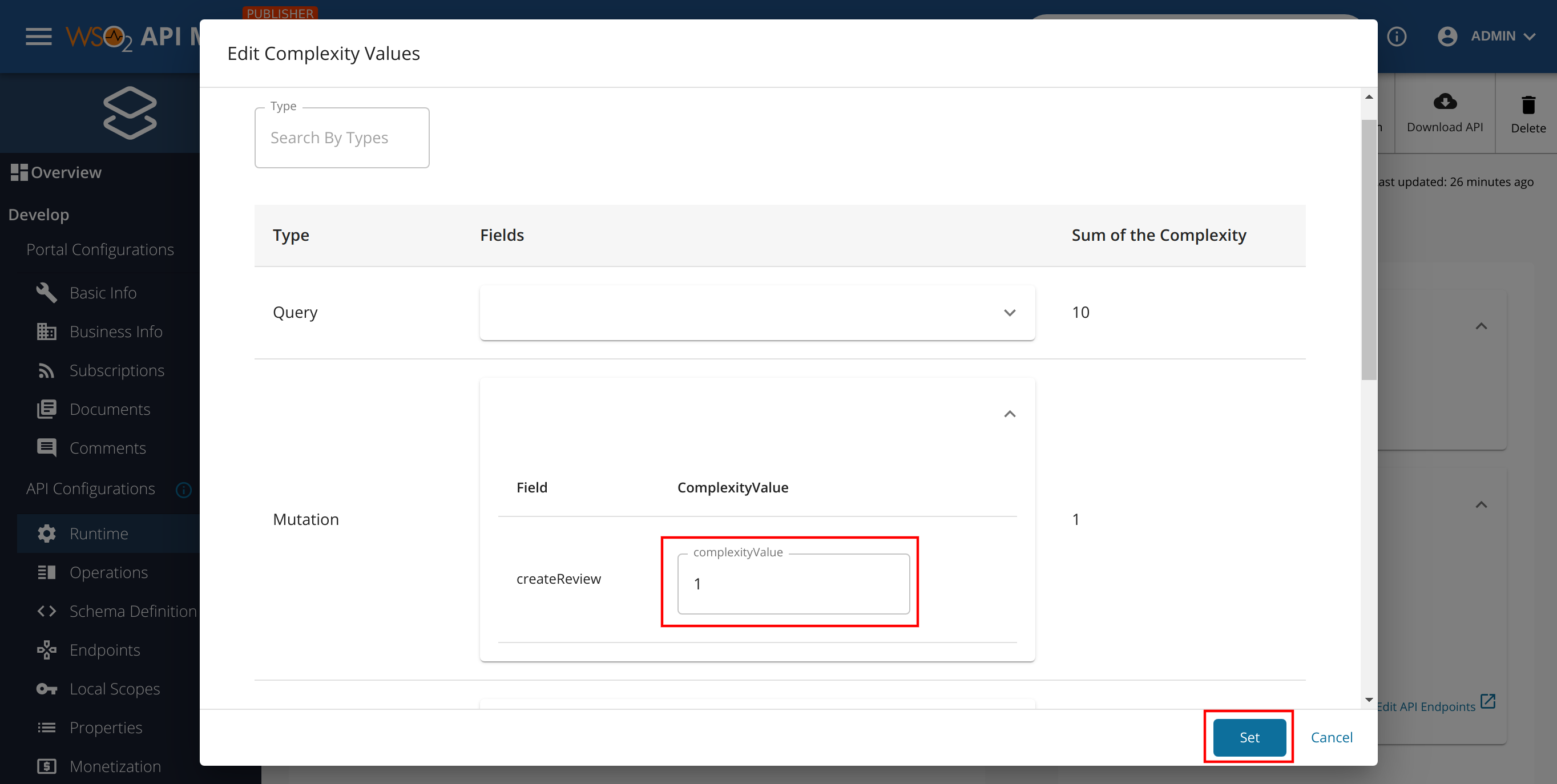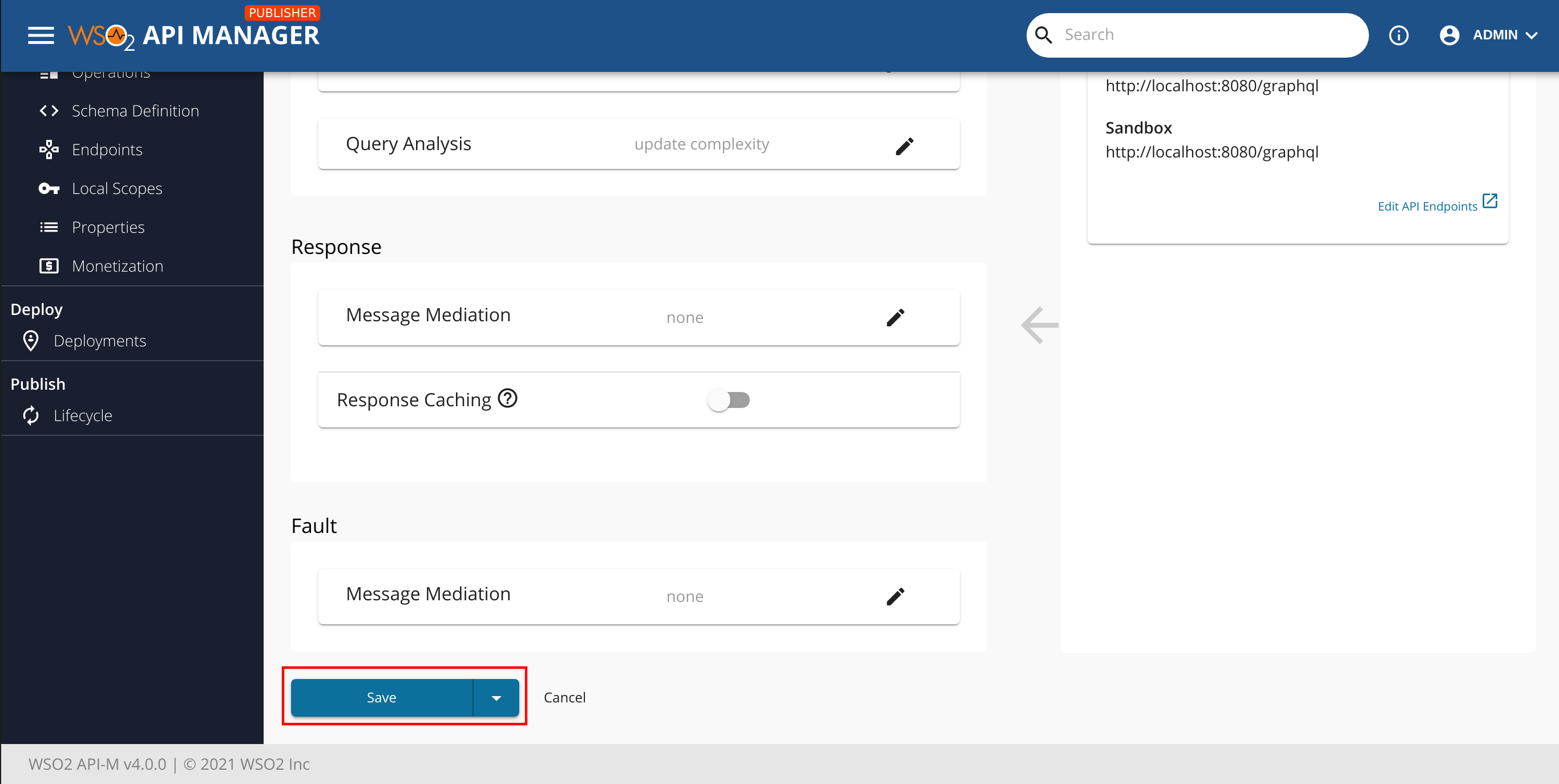Query Complexity Limit
Often, limiting only the depth of a query is not sufficient to protect a GraphQL service from complex queries.
The reason for this is that some fields in a GraphQL schema are more costly to compute than others. MWARE ESB introduces
“Query Complexity Limitation” to address such cases.
With this strategy, a request allowed or rejected based on the complexity of the query, and the configured max complexity value of the subscription policy for the corresponding API.
Here we introduced the complexity values for each of the Fields in the schema. That describes
the computation cost of resolving the particular field.
Note
If the field needs to call an expensive service to resolve itself,
then the complexity should be at a high level, but if the field is easy to resolve(an inexpensive operation),
the complexity should be at a low level. If no complexity defined for a field, by default it will get a value of 1.
At runtime, a query will be blocked if its calculated complexity exceeds the specified max complexity.
Following is a simple example which can be used to understand how the calculation happens.
If there are no arguments provided in a query, the total complexity can be calculated by simply adding the individual complexity values of each field.
query {
allFilms{ # complexity 1
id # complexity 3
title # complexity 1
planets { # complexity 2
climate # complexity 1
}
}
}
# total complexity = 1 + 2 + 1 + 3 + 1 = 8
With arguments, complexity can be calculated values as follows.
query {
allFilms(first: 5){ # complexity 1
id # complexity 1
title # complexity 1
planets(first: 2) { # complexity 1
climate # complexity 1
}
}
}
# total complexity = ((( 1 + 1 ) * 2 ) + 1 + 1 + 1 ) * 5 = 35
query {
allFilms(first: 5){ #complexity 1
id #complexity 3
title #complexity 1
planets(first: 2) { #complexity 2
climate #complexity 3
films(first: 5) { #complexity 1
createdAt #complexity 1
director #complexity 1
}
}
}
}
# total complexity = ((((((1 + 1 + 1)* 5)+ 3 + 2 )* 2)+ 1 + 3 + 1)* 5) = 225
Let's see how GraphQL Query Complexity Limitation can be managed with your GraphQL API.
Adding a new Subscription policy with GraphQL Max Complexity value¶
- Sign in to the Admin Portal using the URL
https://localhost:9443/adminand your admin credentials (admin/admin by default). - Click Subscription Policies under the Rate Limiting Policies section to see the set of existing subscription policies.
- To add a new Subscription Policy, click Add Policy .

- Fill in the required details.

- click Save Button.

Design a GraphQL API¶
To design a GraphQL API, see Create a GraphQL API.
Note
Instead of giving Business Plans of GraphQL API related details in Create a GraphQL API, Use Business Plans that you create in the previous steps.
Update field's complexity values of a GraphQL API¶
- Sign in to the Publisher Portal using the URL
https://localhost:9443/publisher. - Click edit button of the Query Analysis tab under the Run time Configuration section to see the set of default
field's complexity values.

- After Updating complexity values, click Set buttons.

- click Save buttons to update the API.

Invoke a GraphQL API¶
To invoke a GraphQL API, see Invoke a GraphQL API.
To perform GraphQL Query Complexity Limitation:
a. Click Complexity Analysis tab to see the Complexity values of the fields.

b. Enter the following sample query. Then click on execute button as follows.
query{
allHumans(first:6){
id
name
friendsConnection(first:5){
totalCount
friends{
name
}
}
}
}

You have now successfully blocked a requested GraphQL query using the Max Complexity value that you assigned before.
Top